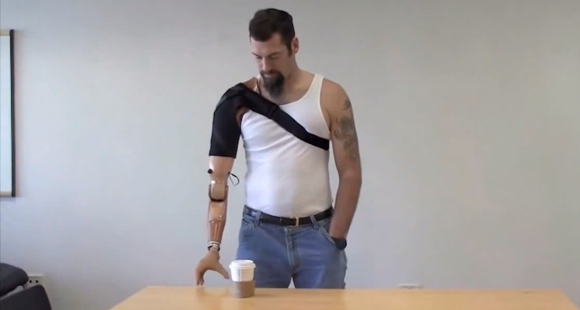An Inventory of the Dangers of Science Denialism

We sometimes get risk wrong. We fear some things more than the evidence says we need to, and some things less than the evidence says we should. That can be bad for our health, a risk I call the Risk Perception Gap. Recognizing this risk and understanding why it happens is a necessary step toward reducing some of its harm.
A significant group of these mistakes fall under the name Denialism (a label given by Michael Specter in his book of that name.) This is the seemingly irrational denial of clear and convincing scientific evidence by people whose worldviews conflict with what that evidence says. To illustrate this phenomenon, demonstrate that people on all sides of lots of issues do the same thing, and hopefully make dramatically clear just how dangerous this sort of Risk Perception Gap can be, I offer this list of examples:
The Issue: Vaccines Safety
The Body of Evidence; Vaccines Do Not Cause Autism (source: Centers for Disease Control)
Skeptics; mostly liberal “pro nature” environmentalists, some anti-government libertarians
Ramifications: The spread of preventable diseases
The Issue: Genetically Modified Food
The Body of Evidence; No known human harm, environmental impacts no different from other forms of hybridization (source: National Academies of Science)
Skeptics: liberal “pro nature” environmentalists
Ramifications; starvation and death in countries that refused GM food during famines, lost opportunities for improved human health for hundreds of millions, sustainable food production, reduced pesticide use
The Issue: Nuclear Power
The Body of Evidence: Even high doses of ionizing radiation do very little damage to human or environmental health (source: Radiation Effects Research Institute)
Skeptics; liberal “pro nature” environmentalists
Ramifications: energy economics that favor fossil fuels, causing millions of deaths and illness from particulate pollution and contributing to the risks associated with climate change.
The Issue: Shale Gas extraction from “Fracking”
The Body of Evidence; Open. Many fears (increased risk of breast cancer, dangerous levels of radiation in drinking water, serious impacts from seismological danger, methane released in production equal to greenhouse gas reduction of natural gas to make electricity) either debunked or unsupported by any reliable evidence.
Skeptics: liberal “pro nature’ environmentalists
Ramifications: potential limits to use of natural gas for energy production. Natural gas burning emits half the CO2 greenhouse gas emissions of coal in energy production.
The Issue: Fluoride
The Body of Evidence; small increased risk for a small minority of the population of white spots on teeth. (source: National Academies of Science)
Skeptics; liberal “pro nature” environmentalists, anti-government libertarians
The Ramifications; tens of millions of people not receiving dental health protection from a natural mineral the benefits of which vastly outweigh negligible health risks.
The Issue: Insufficient testing of most industrial chemicals in commerce.
The Body of Evidence; Thousands of chemicals have not been tested for human and environmental risks, and for many there are signs of possible hazard. But only testing of both the potential hazard of these chemicals (can they do something bad) AND our exposure to them (what dose do we actually get, by what route, at what ages, are we exposed infrequently or chronically, etc.) can inform society about actual risk. Hazard alone is insufficient.
Skeptics of a more fully informed risk-based approach to chemicals testing; liberal “pro nature’ environmentalists
Ramifications; Hazard-only testing yields only partial evidence of possible harm which, while not fully informing society about risk, produces fears and precautionary bans of some chemicals, leading to the use of untested or more expensive alternatives in some cases, and to the loss to society of the benefits of useful products and services for which the hazard is highly speculative and unsupported by the bulk of the evidence.
The Issue; Climate Change
The Evidence; Human activity is changing the climate with potentially severe impacts to human and environmental health.
Skeptics; Conservatives and libertarians who don’t like government intervention in general.
The Ramifications; Delay in mitigating, or preparing to adapt to one of the gravest dangers humans have ever faced.
And there is one final risk;
The Issue: The perception of risk (all perception for that matter) is innately subjective, a mix of the facts and how we feel about those facts.
The Evidence; Research from neuroscience and economics and psychology and sociology on the inherently affective and instinctive nature of human cognition, especially about risk. (source: How Risky Is It, why Our Fears Don’t Always Match the Facts http://www.amazon.com/How-Risky-Really-Fears-Always/dp/0071629696/ref=sr_1_1?ie=UTF8&s=books&qid=1266244724&sr=1-1 – my book, several chapters of which are available free here http://www.dropeik.com/how_excerpt.html) another great source on the limits of human reason is Thinking Fast and Slow, by Daniel Kahneman)
Skeptics; Intellectuals, academics, engineers, scientists, economists, educators, authors and pundits – including Michael Specter – who are so enamored with the powers of the human mind that they deny the overwhelming scientific evidence of the limits of human reason that explain WHY science denialism happens, which of course is a form of ‘irrational’ science denialism all by itself.
Ramifications; All the risks of the Risk Perception Gap listed above, and many many MANY more.





